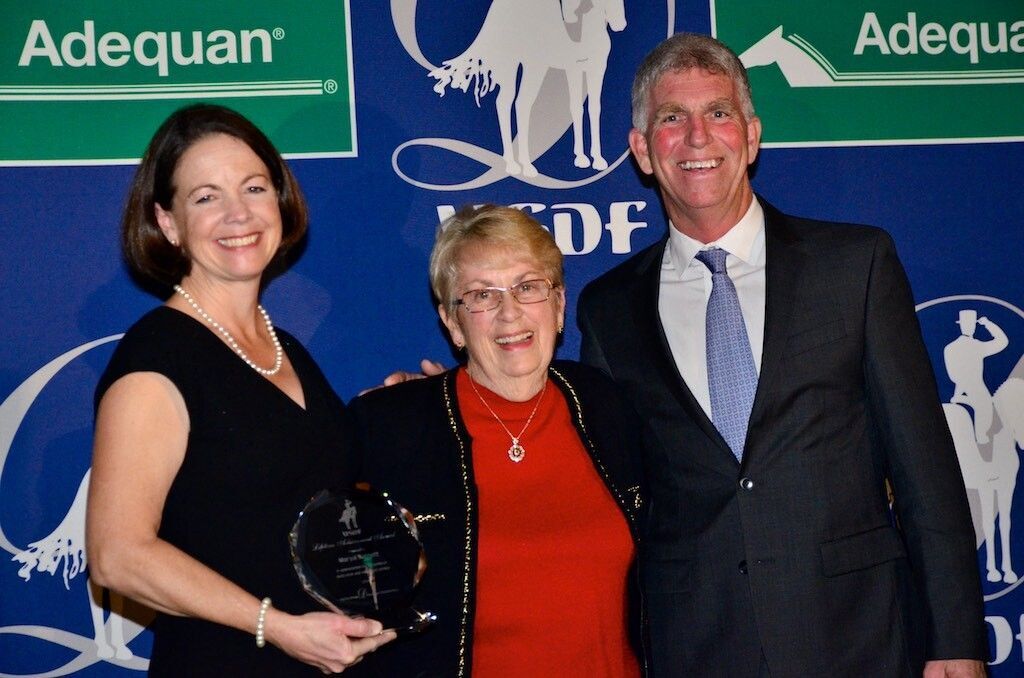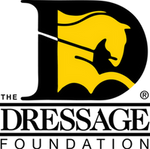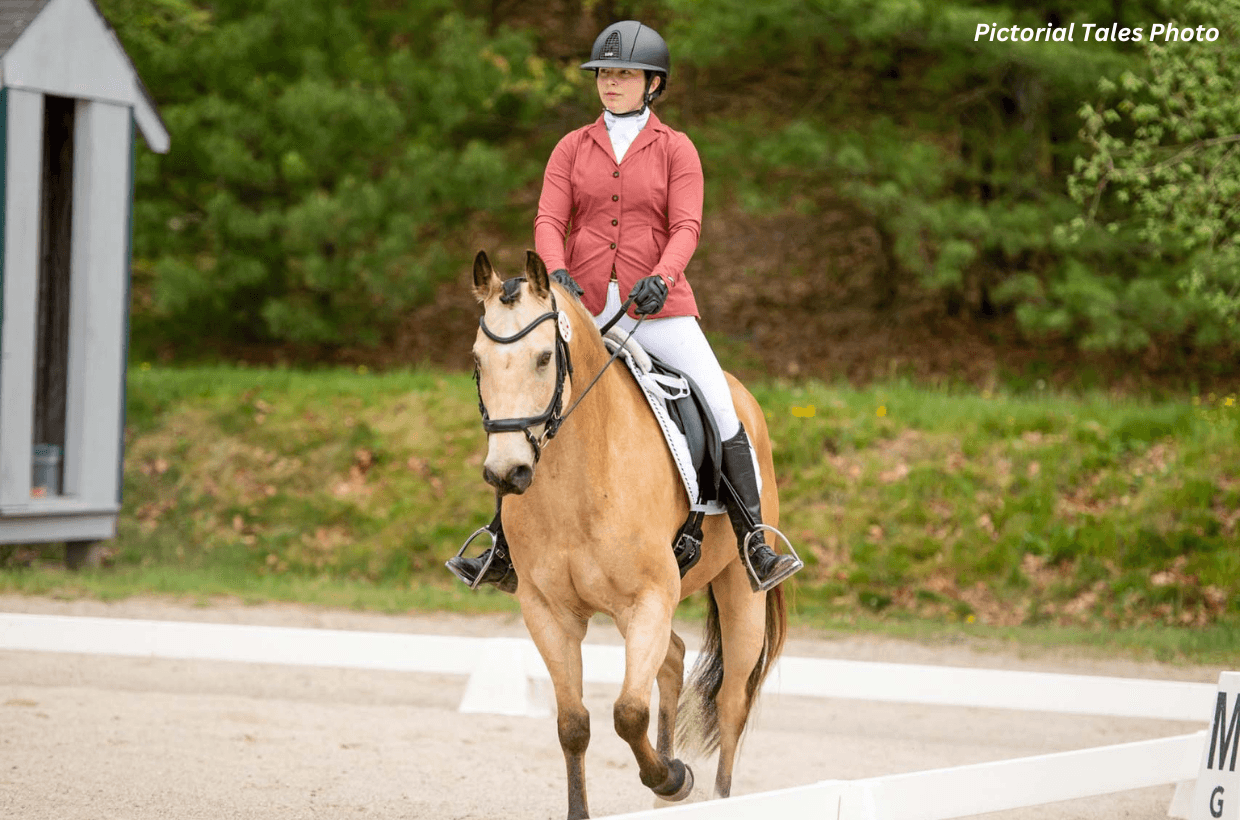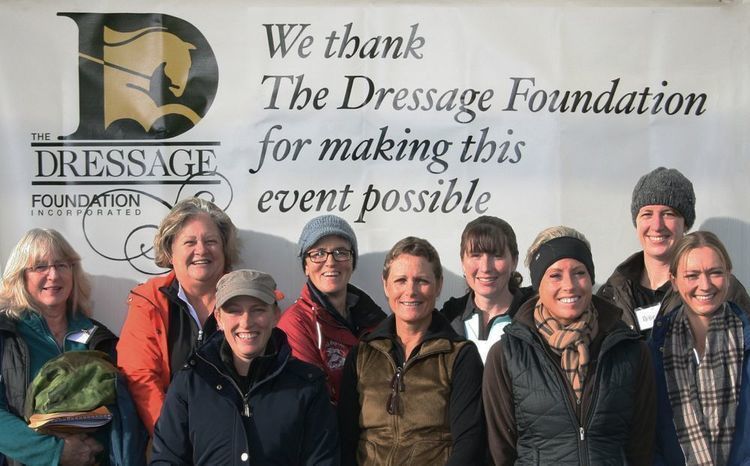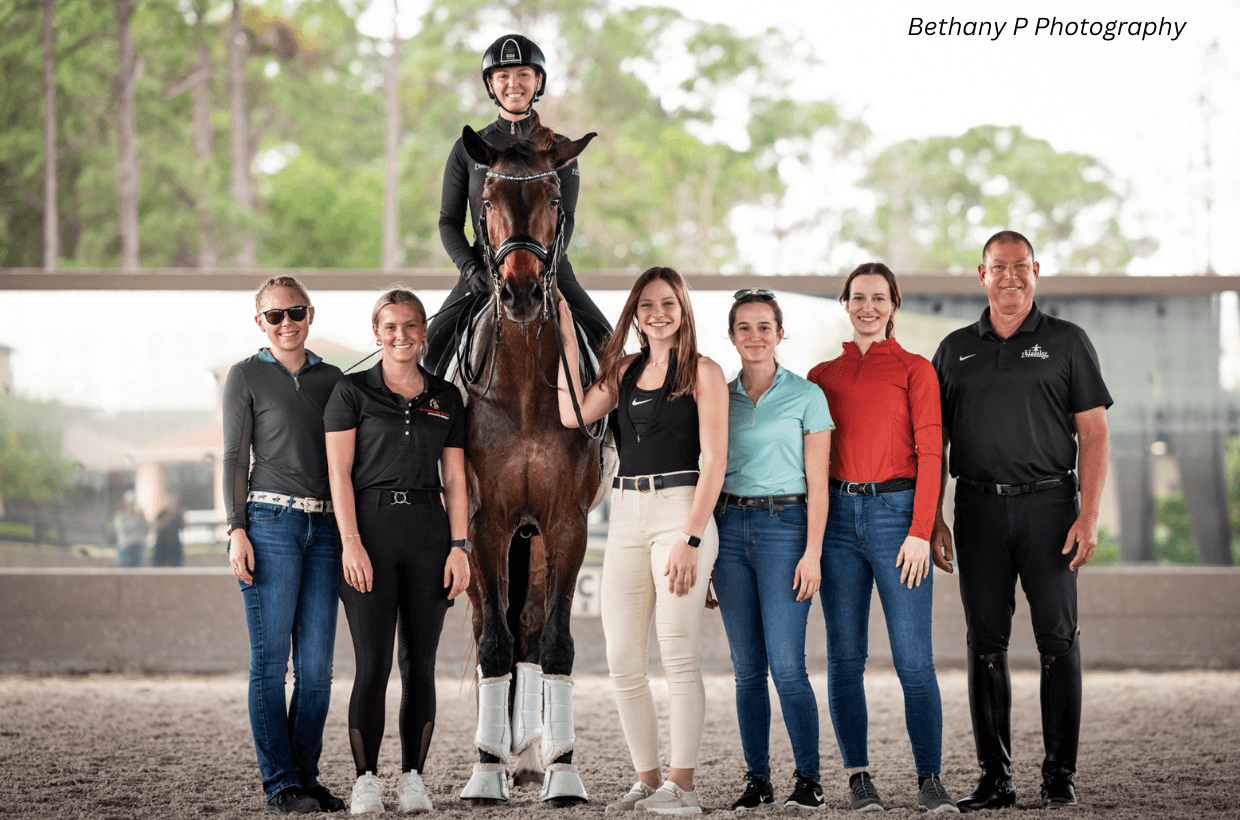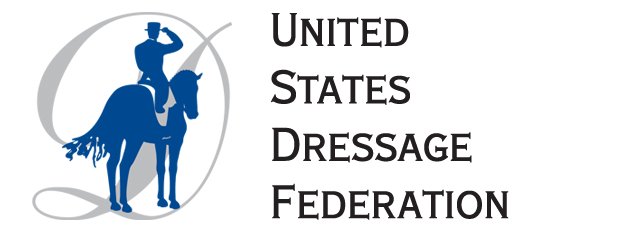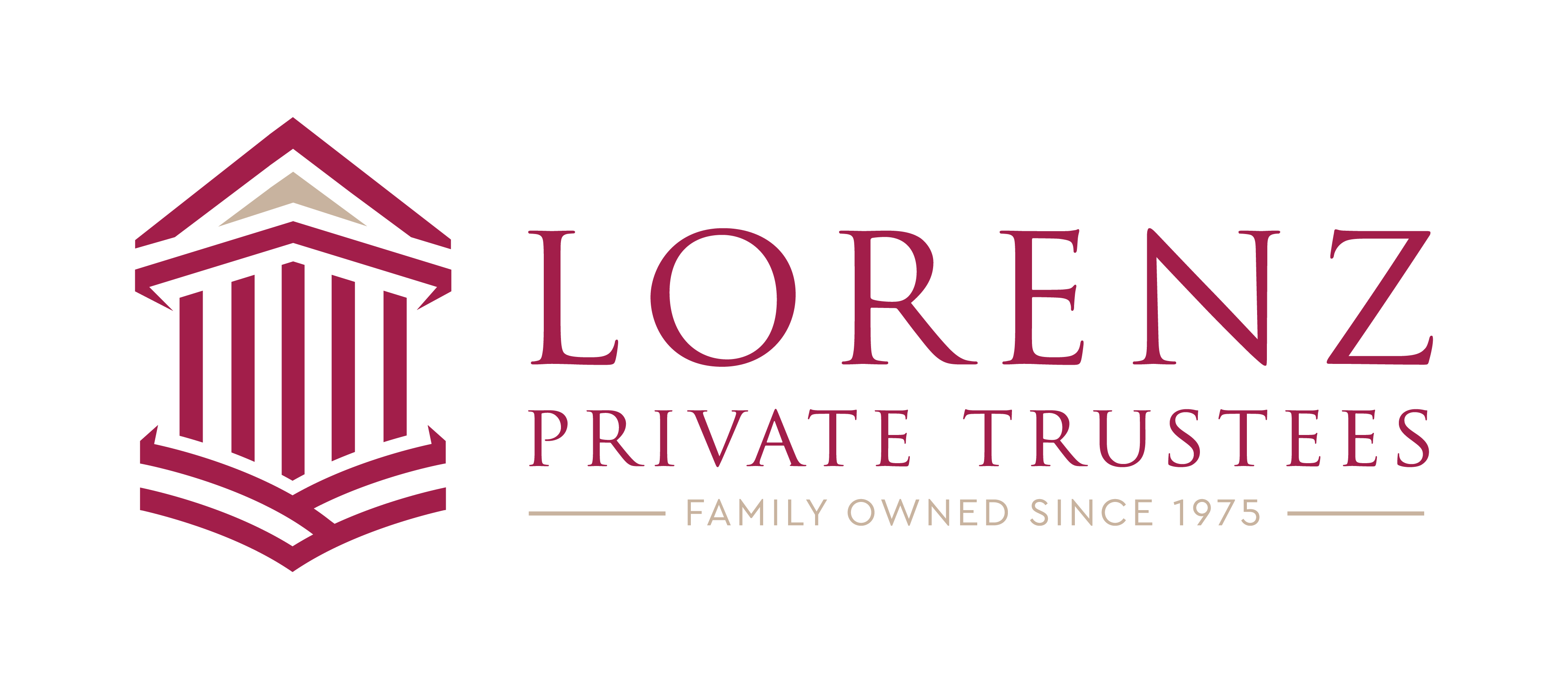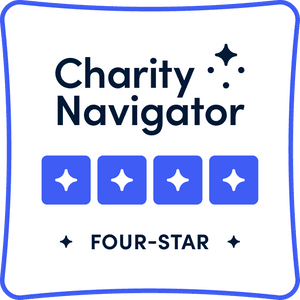Q&A with Maryal Barnett
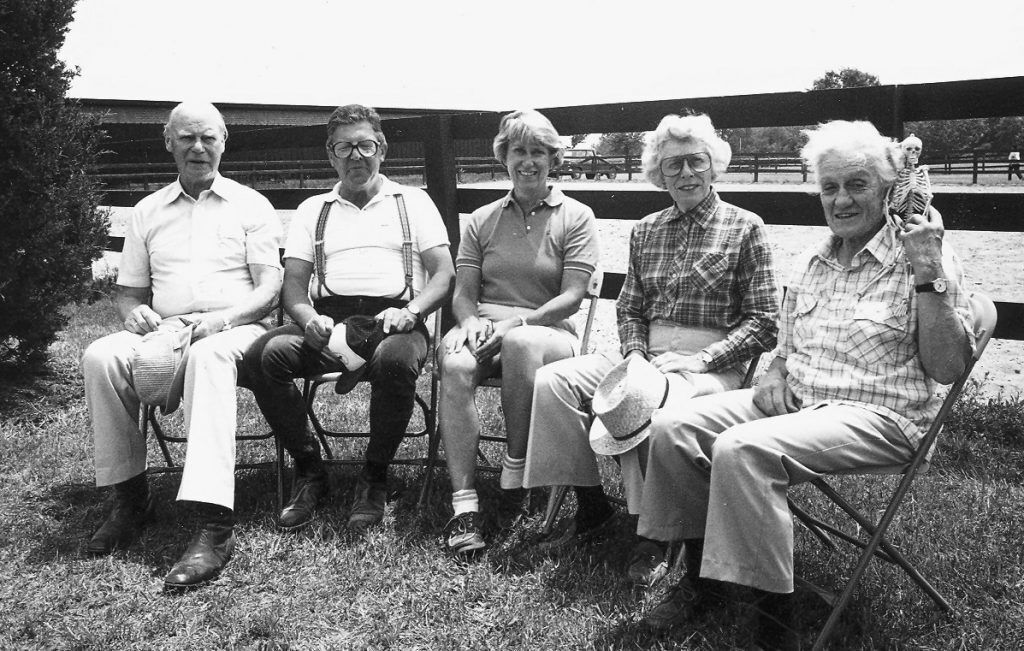
Dressage in the early days -- Col. Aage Sommer, Major Anders Lindgren, Maryal Barnett, Violet Hopkins, and Sally Swift attend an educational event in Michigan. Courtesy of the United States Dressage Federation.
Maryal Barnett has been with The Dressage Foundation (TDF) since almost the very beginning. In addition to serving on the Board of Directors as an at-large director for over three decades, she has also served as Chairman, Vice Chairman, Vice President, and on various committees. Maryal’s extensive history with TDF is unmatched, and she has had a unique perspective in seeing the organization grow and progress through the years.
We sat down with Maryal in 2019 and asked her a few questions about her experiences with dressage and TDF:
Why did you first become involved with The Dressage Foundation?
In about 1990, Lowell Boomer told me about the concept of having a separate entity function as an organization that would raise money for the advancement of dressage in the U.S. Because of my involvement with the United States Dressage Federation (USDF), I knew how important it was to make it possible for people to have access to funding. I was honored to be the 11th Charter Benefactor of The Dressage Foundation.
Tell us about the state of dressage in the late 1980s, when TDF was formed, and how it has changed in the past 30 years.
Dressage had been building in enthusiasm, but the educational opportunities were still difficult to obtain, especially by those of limited means. There were schools that had been organized on the East and West coasts, and the Vi Hopkins/USDF National Seminar for Dressage Instructors was held in Michigan. That was my first opportunity to learn both the how and why of teaching dressage from international instructors. I could do it because it was affordable. It was my foundation!
Why do you feel that it’s important to give back to the sport with your time, talent, and treasure?
The sport of dressage has given so much to me. Early in my career, I was building my own business through both my own efforts and those who encouraged and helped me along. Now, I am able to give back. That is so rewarding. Much more than when I was on the receiving end. To see others be able to advance in achieving their goals, and knowing that the horses benefit as well, gives me much pleasure.
What are your wishes for The Dressage Foundation and U.S. dressage as we look forward to the next 30 years?
It is my wish that more people know about and realize the importance of TDF so that those who have needs and those who have means can take part in this wonderful organization. In my travels around the U.S. as a judge, instructor, and L Faculty member, I see the thirst for knowledge. There are opportunities, but not enough to be available for all who are searching. We need to be sure that we are training enough educators for the future, and this teaching needs to be based on sound principles. Both the USDF and The Dressage Foundation are a part of this. USDF offers the education. The Dressage Foundation offers grants to help finance the education.
What advice and encouragement would you give to a young leader of our sport?
It is very important to learn your craft throughout your life. There will come a time when it is equally important to give back so that the sport may live on. At first there will be opportunities to volunteer time and small amounts of “treasure.” Do it! You will benefit from it. Then, as you
can, give back in larger amounts. The future of dressage depends on this.
